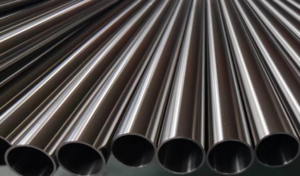Monel alloy, a superior nickel-based alloy, enjoys widespread applications across numerous industrial sectors due to its unique chemical composition, which enables it to exhibit outstanding corrosion resistance in harsh environments. However, the duration of Monel alloy’s corrosion resistance is susceptible to various factors, including alloy composition, temperature conditions, corrosive medium concentration, and processing techniques. This article delves into factors affecting the corrosion resistance duration of Monel alloy.

Factors Affecting the Corrosion Resistance Duration of Monel Alloy:
Firstly, regarding alloy composition. Monel alloy primarily comprises nickel, molybdenum, iron, and other elements, which contribute to its remarkable corrosion resistance. The incorporation of specific alloying elements can further enhance this property. For instance, the addition of copper improves the alloy’s corrosion resistance, bolstering its strength and toughness. Meanwhile, increasing chromium content facilitates the formation of an oxide film on the alloy’s surface, reinforcing its anti-corrosion capabilities and enabling it to withstand harsh environments such as strong acids and alkalis for extended periods.
Secondly, temperature conditions play a pivotal role. Monel alloy’s corrosion resistance is influenced by temperature. Extreme high temperatures, for instance, can significantly accelerate the corrosion rate, shortening the alloy’s service life. Thus, maintaining appropriate operating temperatures is crucial to ensure Monel alloy retains its high corrosion resistance in high-temperature, high-pressure, and corrosive environments.
Furthermore, the concentration of corrosive media significantly impacts Monel alloy’s corrosion resistance duration. In high-concentration chlorine environments, for example, Monel alloy’s corrosion resistance diminishes as high chloride concentrations facilitate the penetration of chloride ions to the metal surface, triggering chemical reactions with alloy elements and damaging the surface. Consequently, adopting appropriate protective measures like surface coatings and corrosion inhibitors can extend the alloy’s lifespan.
Additionally, processing techniques influence Monel alloy’s corrosion resistance duration. Appropriate processing can significantly impact the alloy’s microstructure and properties. Therefore, adopting suitable processing techniques during production can markedly enhance the alloy’s corrosion resistance. For instance, precipitation hardening treatments can significantly increase Monel alloy’s strength and hardness, thereby reinforcing its corrosion resistance and prolonging its lifespan in corrosive environments.
Conclusion
In conclusion, despite Monel alloy’s crucial role in sectors like aerospace, petrochemicals, and marine engineering due to its exceptional corrosion resistance, its corrosion resistance duration is influenced by factors such as alloy composition, temperature conditions, corrosive medium concentration, and processing techniques. Consequently, rigorous control over production processes is essential to ensure Monel alloy achieves optimal performance and a longer corrosion resistance duration.
Why Choose Huaxiao Alloy?
Thank you for reading our article and we hope it can help you to have a better understanding of the factors affecting the corrosion resistance duration of Monel alloy. If you are looking for suppliers and manufacturers of Monel alloy, we would advise you to visit Huaxiao Alloy.
As a leading supplier of Monel alloy from Shanghai China, Huaxiao Alloy offers customers high-quality Monel 400 and Monel K500 at competitive prices.



